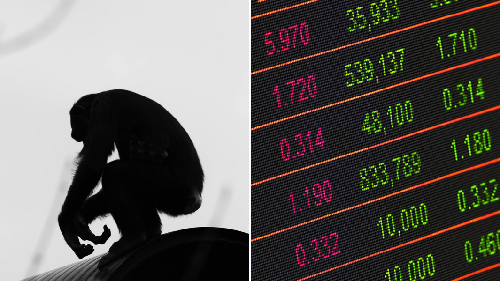As the world’s largest equities marketplace, the New York Stock Exchange (NYSE) is home to some of the planet’s most brilliant financial minds. Yet, in 1999, as the new millennium approached, a particularly talented primate managed to beat them all.
This isn’t a punchline, but a genuine piece of Wall Street history. In a widely publicized experiment, a five-year-old chimpanzee named Raven was given the task of creating a stock portfolio. On January 7, 1999, Raven was given a dartboard listing 133 internet companies and, with a few throws, selected 10 stocks. The portfolio was dubbed “MonkeyDex.”
Over the course of the year, Raven’s randomly selected portfolio delivered a staggering 213% gain, outperforming more than 6,000 professional brokers. In comparison, the NASDAQ’s gain for the year was 86%. MarketWatch, a financial news organization, even ran a headline declaring, “Chimp ’99 Champ! Makes Monkey of Wall Street.”
Raven’s remarkable success was a stark and humorous demonstration of a theory known as the “random walk” hypothesis, which suggests that stock prices are unpredictable and that a portfolio chosen at random can perform just as well as one chosen by an expert. While the chimpanzee’s winning streak was a combination of luck and the booming dot-com bubble of the late 90s, the story remains a popular and humbling reminder of the unpredictable nature of the stock market.







